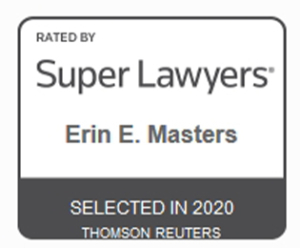Divorce and the Holidays: How to Co-Parent Effectively
For divorced parents, holiday co-parenting can be difficult as they navigate the pressure to create a positive experience for their children. According to a recent study, nearly 9 in 10 U.S. adults report experiencing stress during the holiday season. For divorced or separated parents, these challenges can be magnified as they navigate shared parenting schedules and the pressure to create a positive experience for their children.
Successfully co-parenting during the holidays is more than managing logistics—it’s about fostering a sense of stability and joy for your children amid change. With careful planning and open communication, the holidays can still be a time of happiness and connection. In this blog, we’ll share practical strategies to help you co-parent effectively, making sure your holiday season is filled with cherished memories rather than conflict.
The Importance of Co-Parenting During the Holidays
The holidays hold deep emotional significance, but their disruptions to daily routines can intensify the stress of divorce or separation. With the United States leading the world in the percentage of children living in single-parent households—more than three times the rate of other countries—many families face the unique challenge of navigating co-parenting arrangements during this time.
Clear communication and cooperation between parents are essential to helping make the season a positive experience for everyone involved. When done effectively, co-parenting during the holidays can:
- Provide stability and reassurance for your children.
- Reduce conflict between parents.
- Foster an environment where children feel safe, loved, and supported.
By working together, parents can help their children enjoy the holiday season while creating lasting, joyful memories. Let’s explore practical tips to help you navigate co-parenting successfully during the holidays.
Tips for Co-Parenting Effectively During the Holidays
1. Plan Ahead and Be Specific
Planning the holiday schedule well in advance is one of the most effective ways to avoid misunderstandings and conflicts. Establish clear details about dates, times, and locations for transitions to help confirm everyone is on the same page. For example, if one parent cherishes Christmas Eve dinner while the other treasures Christmas morning gift-giving, you might alternate years or split the day to allow both parents to participate in meaningful moments.
Here are some tips to help streamline planning:
- Use a shared calendar app like Cozi or OurFamilyWizard to organize custody schedules and keep everyone informed.
- Communicate openly about which traditions and events matter most to each parent, and work together to accommodate those priorities whenever possible.
Addressing potential issues can create a smoother, stress-free holiday experience for parents and children.
2. Keep Communication Civil and Child-Centered
Open, respectful communication is the cornerstone of effective co-parenting. Shield children from adult conversations about schedules or disagreements. Present a unified front to help show that their well-being is your top priority. Discuss what’s best for your children, and help avoid rehashing past conflicts or making personal attacks.
While traditions and family time are important, your child’s emotional well-being should always come first. Here are some tips to help consider their feelings when making plans:
- Use neutral language when discussing plans.
- Ask your children how they’d like to celebrate, depending on their age and maturity.
- Avoid putting them in the middle by asking them to choose between parents.
3. Managing Emotional Triggers
The first few holiday seasons after a divorce can bring a mix of sadness, nostalgia for traditions, and anxiety about navigating new family dynamics. These feelings are completely normal but can become overwhelming if left unaddressed. Recognizing and managing emotional triggers is essential for your well-being and helping foster a positive environment for you and your children.
- Focus on the Present: Shift your attention to the here and now. Embrace opportunities to create new memories with your children and redefine the holiday season in a way that works for your family.
- Seek Support: Share your feelings with trusted friends and family, or consider speaking with a therapist. Professional guidance can help provide you with valuable tools to cope with the emotional challenges of divorce.
- Practice Self-Care: Prioritize your mental and physical well-being. Self-care can help you manage stress and maintain emotional balance, whether exercising, meditating, or reading.
4. Creating New Holiday Traditions
Divorce allows you to establish fresh traditions that reflect your new family dynamic. Children often embrace novelty and enjoy participating in creating traditions.
- Bake cookies together or decorate a tree with personalized ornaments.
- Volunteer at a local charity to teach the value of giving.
- Plan a holiday movie marathon with hot cocoa and popcorn.
Navigating Co-Parenting Arrangements
For divorced or separated parents, navigating co-parenting arrangements during the holidays can be challenging. While most parenting agreements include provisions for dividing time, some may need more clarity or address holiday-specific schedules. Working with a family law attorney or mediator can help formalize plans and avoid unnecessary disputes.
At Masters Law Group, we help families navigate the intricacies of co-parenting, prioritizing children’s best interests while helping parents assert their rights. Our team brings extensive experience and dedication to these often sensitive matters:
- Partner Erin E. Masters is a court-appointed Child Representative with a proven track record of advocating for children in high-conflict cases.
- Partner Anthony G. Joseph is a recognized member of the approved Guardian Ad Litem/Child Representatives list for the Domestic Relations Division of the Circuit Court of Cook County.
By combining legal experience with a compassionate approach, our family law attorneys can help provide families with tailored solutions to create holiday arrangements that prioritize harmony and the well-being of children.
Keeping the Holidays Merry and Bright
The holidays are meant to be a time of love, joy, and togetherness. While divorce can bring unique challenges, effective co-parenting can help ensure the season remains special for your children. By fostering respectful communication and prioritizing your child’s well-being, you can create a harmonious holiday experience with lasting memories.
At Masters Law Group, our award-winning family law attorneys are here to guide you through the complexities of parenting arrangements and co-parenting plans. Whether you’re formalizing a schedule or resolving disputes, we’ll work with you to provide a peaceful and happy holiday season for your family.
Contact us today to learn how we can help you navigate the holiday season with confidence and clarity.
FAQs About Co-Parenting During the Holidays
What if my ex and I can’t agree on a holiday schedule?
If you and your ex-spouse cannot agree on a holiday schedule, consider working with a family law mediator for guidance. A neutral third party can help resolve disputes and establish a fair plan. If disagreements persist, you may need to revisit the parenting plan in court.
How can I help my child cope with holiday changes after divorce?
To help your child adjust, maintain a positive attitude about the holiday arrangements. Reassure them that both parents love them and are committed to making the holidays special. Creating new traditions and encouraging open communication about their feelings can also ease the transition.
Can we alternate holidays instead of splitting time on the same day?
Yes, alternating holidays is common and often works well for families. For example, one parent might have the children for Christmas this year, and the other parent will have them next year. Alternating holidays can provide more extended and uninterrupted time for children to bond with each parent.
What should I do if my ex refuses to follow the agreed holiday schedule?
If your ex does not adhere to the agreed-upon holiday schedule, document the violation and try to resolve the issue amicably through communication. If this approach fails, you may need legal assistance to enforce the parenting plan. The family law attorneys at Masters Law Group can help guide you through the process.
Can I travel out of state or country with my children for the holidays?
Traveling with children during the holidays often requires the other parent’s consent, especially if you plan to leave the state or country. Check your parenting agreement and consult your ex-spouse well in advance to secure any necessary permissions. For international travel, help ensure you comply with passport and travel requirements.


















